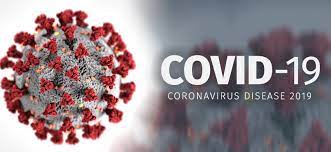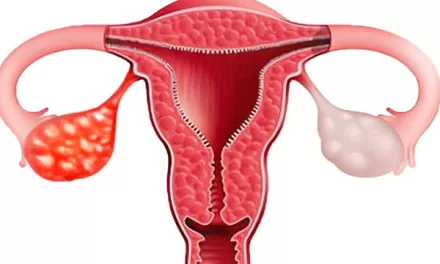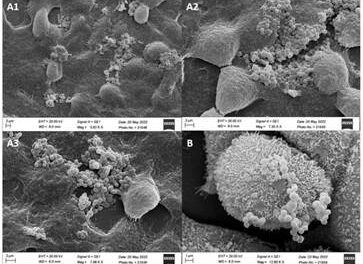Proceedings of the meeting
Members and Advisors of the Emergency Committee were convened by videoconference.
The Director-General welcomed the Committee and thanked its members and advisers for their support and guidance throughout the COVID-19 pandemic. He highlighted the importance of the Committee’s work considering the ongoing challenges posed by the COVID-19 pandemic. The Director-General emphasized that a tailored risk-based approach of vaccination in conjunction with appropriate public health and social measures (PHSM) is needed and reiterated the global call for action to scale up vaccination to achieve 40% coverage for every country’s population by the end of 2021.
Representatives of the Office of Legal Counsel (LEG) and the Department of Compliance, Risk Management, and Ethics (CRE) briefed the members on their roles and responsibilities. The Ethics Officer from CRE provided the members and advisers with an overview of the WHO Declaration of Interests process. The members and advisers were made aware of their individual responsibility to disclose to WHO, in a timely manner, any interests of a personal, professional, financial, intellectual or commercial nature that may give rise to a perceived or direct conflict of interest. They were additionally reminded of their duty to maintain the confidentiality of the meeting discussions and the work of the Committee. Each member who was present was surveyed. Two members reported changes in their professional responsibilities since the last meeting, but their new roles were assessed and not considered to generate a conflict of interest. One adviser has been appointed to WHO and will no longer participate in the Committee in his former capacity. As such, no conflicts of interest were identified.
The Secretariat turned the meeting over to the Chair, Professor Didier Houssin. Professor Houssin reviewed the objectives and agenda of the meeting.
The Secretariat presented updates on:
- global epidemiological context and the factors driving transmission;
- anticipated evolution of COVID-19 and forecasted potential future scenarios;
- ongoing challenge of global COVID-19 vaccine inequity and projections for increasing COVAX Facility vaccine supply; and
- States Parties’ increasing consistency in following recommendations regarding health measures for international traffic.
The Committee discussed key issues including:
- SARS-CoV-2 surveillance efforts and challenges;
- immunity acquired through natural infection or vaccination and protection offered by both;
- the value of intra-action reviews for States Parties to inform and enhance response efforts; and
- the importance of maintaining risk-informed and multi-faceted PHSM.
The Committee expressed concerns over the challenges faced by the African Region in responding to the COVID-19 pandemic, including accessing sufficient vaccines, diagnostics, and therapeutics, as well as collecting, analysing, and reporting epidemiological and quality laboratory data, including genomic sequencing data, required to monitor the evolution of the COVID-19 pandemic. The Committee urged for adequate resourcing, capacity building, and technical support for the Region and its Member States to strengthen their surveillance and response efforts.
The Committee thanked WHO for its leadership in coordinating the global COVID-19 pandemic response and for its continued effort and support to States Parties in reporting on implementation of the Temporary Recommendations. The Committee highlighted the need for WHO Headquarters, Regional Offices, and Country Offices to continue supporting States Parties in implementing and reporting on Temporary Recommendations.
The Committee recognized the value of WHO’s continued coordination of short, medium, and long-term research agendas to address knowledge gaps and to respond to the evolving pandemic. Further research is needed on One Health aspects of SARS-CoV-2, tools and medical devices (such as reusable masks and respirators), and next generation vaccines, diagnostics, and therapeutics for long-term control of the pandemic. In addition, research is needed to understand the attributable impact of individual and combined PHSM in the evolving pandemic context, including aspects related to variants, host immunity from natural infection, and vaccine-derived immunity.
The Committee underlined that, while progress has been made through increased uptake of COVID-19 vaccines and therapeutics, analysis of the present situation and forecasting models indicate that the pandemic is far from finished. The Committee emphasized that there is a critical need for States Parties to continue using all available tools including PHSM, vaccination, diagnostics, therapeutics, and effective communications to control the pandemic and mitigate its negative impacts on health as well as social-economic and educational contexts. In addition, the Committee recognized that the protracted nature of the COVID-19 pandemic poses an additional burden in the context of complex humanitarian emergencies, mass migration, population displacement, and other crises. As such, the Committee suggested States Parties consider revising their preparedness and response plans and assistance policies to account for these interdependencies.
The Committee unanimously agreed that the COVID-19 pandemic still constitutes an extraordinary event that continues to adversely affect the health of populations around the world, poses a risk of international spread and interference with international traffic, and requires a coordinated international response. As such, the Committee concurred that the COVID-19 pandemic remains a public health emergency of international concern (PHEIC) and offered its advice to the Director-General.
The Director-General determined that the COVID-19 pandemic continues to constitute a PHEIC. He accepted the advice of the Committee and issued the Committee’s advice to States Parties as Temporary Recommendations under the IHR.
The Emergency Committee will be reconvened within three months or earlier, at the discretion of the Director-General. The Director-General thanked the Committee for its work.
Temporary Recommendations to States Parties
While the Committee noted that there are nuances associated with diverse regional contexts related to the implementation of the Temporary Recommendations, they identified the following as critical for all countries:
-
- MODIFIED: Continue to use evidence-informed Public Health and Social Measures (PHSM) and life-saving tools such as WHO recommended therapeutics, diagnostics, and vaccines for COVID-19. States Parties are advised to regularly adjust their response strategies by monitoring their epidemiological situation, assessing their vulnerabilities including their health system capacity, as well as considering the adherence to and attributable impact of individual and combined PHSM. The use of masks, physical distancing, hand hygiene, and improving ventilation of indoor spaces remain key to reducing transmission of SARS CoV-2. The use of established PHSM in response to individual cases or clusters of cases, including contact tracing, quarantine and isolation, must continue to be adapted to the epidemiological and social context and enforced. Link to WHO guidance
-
- MODIFIED: Take a risk-based approach to mass gathering events by evaluating, mitigating, and communicating risks. Recognizing that there are different drivers and risk tolerance for mass gatherings and mass migrations, it is critical to consider the epidemiological context (including the prevalence of variants of concern, the strength of transmission, as well as contact tracing and testing capacity) when conducting this risk assessment in line with WHO guidance. In particular, fragile and vulnerable States Parties need additional support to address the challenges posed by conflicts, mass migration, or unplanned mass gatherings during the COVID-19 pandemic. Link to WHO guidance
-
- MODIFIED: Achieve the WHO call to action to have at least 40% of all countries’ populations vaccinated by the end of 2021. Increased global solidarity and production capacity is needed to protect vulnerable populations from the emergence and spread of SARS CoV-2 variants. States Parties are requested to share doses to increase global vaccine equity and to use a step-wise approach to vaccination, in accordance with advice from SAGE. Vaccination programmes should include vulnerable populations, including sea farers and air crews. To enhance vaccine uptake, States Parties are encouraged to assess enablers and barriers to vaccination. Link to WHO SAGE Prioritization Roadmap and SAGE Interim Statement on Booster Doses for COVID-19 Vaccination
-
- MODIFIED: Enhance surveillance of SARS-CoV-2 and continue to report to WHO to enable rapid identification, tracking, and evaluation of variants and continued monitoring of the pandemic’s evolution and its control. States Parties are encouraged to strengthen their surveillance systems by implementing a dual-pronged approach for acute event and molecular surveillance strategies, including timely and representative genomic surveillance data. States Parties should leverage existing national, regional, and global networks, such as the Global Influenza Surveillance and Response System, for SARS-CoV-2 surveillance. Link to WHO guidance
-
- EXTENDED: Maintain essential health services with sufficient funding, supplies, and human resources; strengthen health systems to cope with mental health impacts of the pandemic in adults and children, concurrent disease outbreaks, and other emergencies. Link to WHO position paper
-
- EXTENDED: Continue a risk-based approach to facilitate international travel and share information with WHO on use of travel measures and their public health rationale. In accordance with the IHR, measures (e.g. masking, testing, isolation/quarantine, and vaccination) should be based on risk assessments, consider local circumstances, and avoid placing the financial burden on international travellers in accordance with Article 40 of the IHR. Link to WHO guidance
-
- EXTENDED: Do NOT require proof of vaccination against COVID-19 for international travel as the only pathway or condition permitting international travel given limited global access and inequitable distribution of COVID-19 vaccines. State Parties should consider a risk-based approach to the facilitation of international travel by lifting or modifying measures, such as testing and/or quarantine requirements, when appropriate, in accordance with the WHO guidance. Link to WHO interim position paper and Link to WHO guidance
-
- MODIFIED: Recognize all vaccines that have received WHO Emergency Use Listing and all vaccine schedules as per SAGE recommendations, including in the context of international travel. Link to Explanation of WHO Emergency Use Listing and Link to WHO Emergency Use Listing
-
- EXTENDED: Address community engagement and communications gaps at national and local levels to reduce COVID-19 transmission, counter misinformation, and improve COVID-19 vaccine acceptance, where applicable. This will require reinforcing messages that a comprehensive public health response is needed. Link to WHO risk communications resources
- NEW: Support uptake of WHO recommended therapeutics by addressing increased accessibility and affordability. Local production and technology transfer can contribute to global equitable access to therapeutics.












